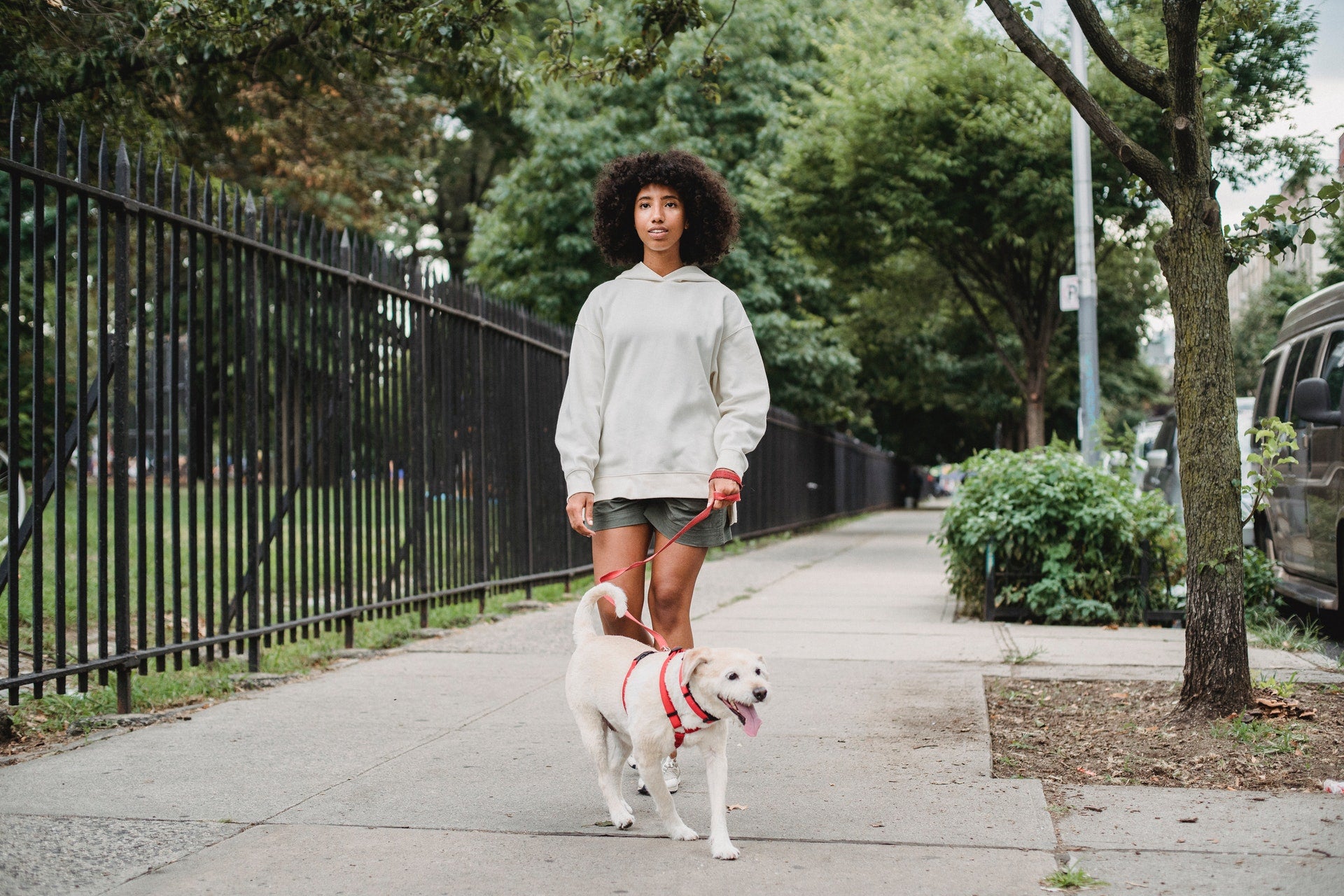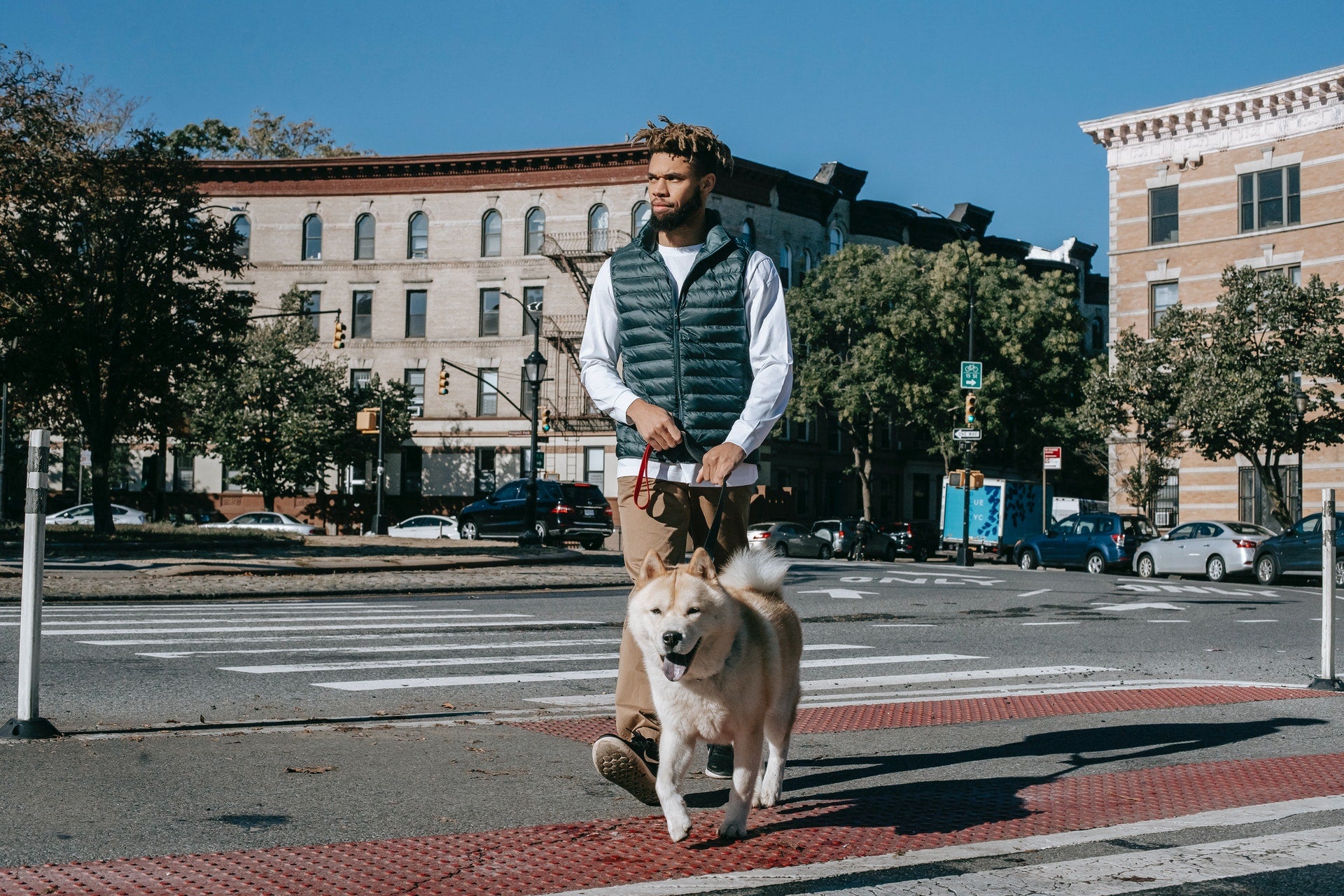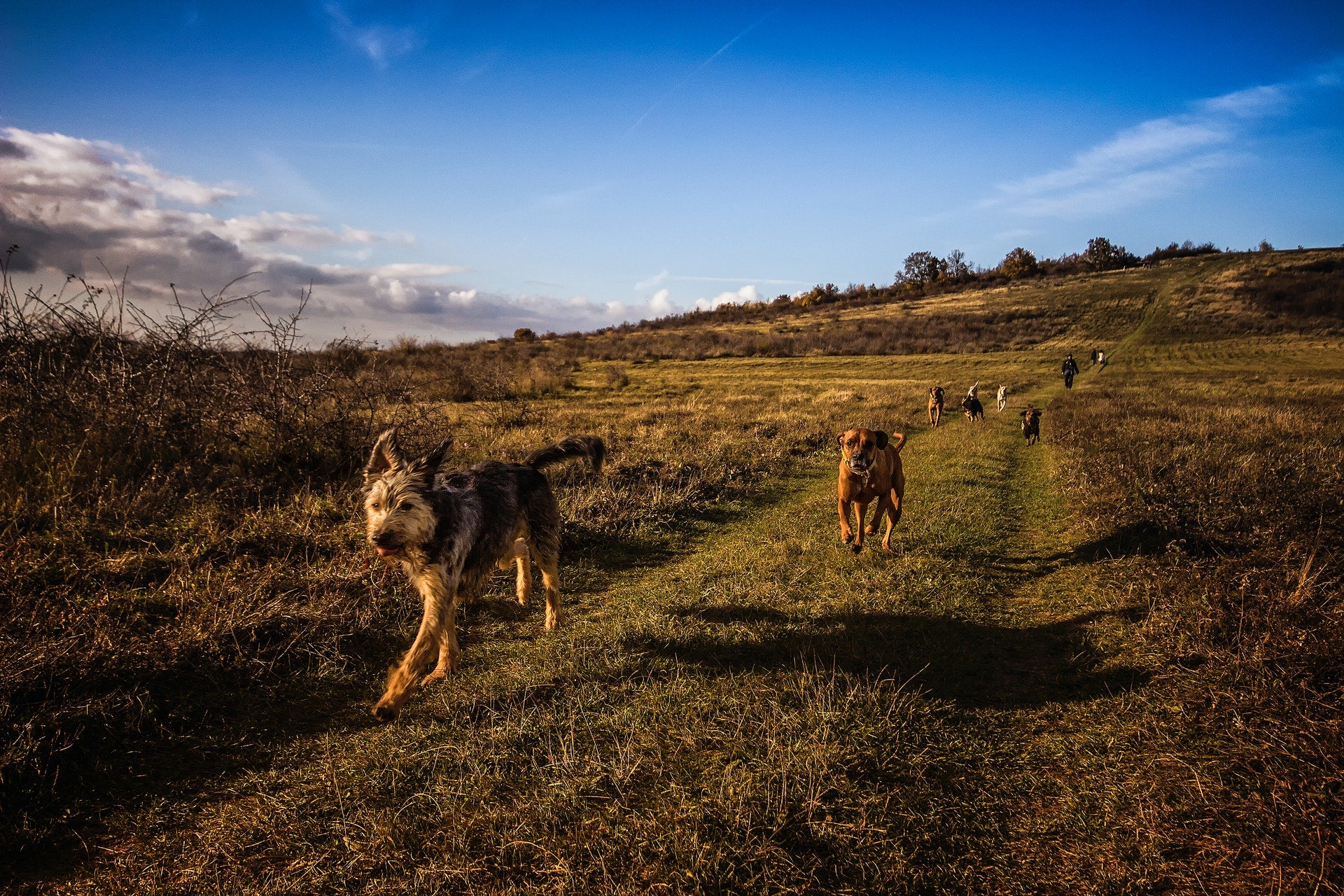Let's start with the Citydogs and throw ourselves into the fray, just like many (big) city dogs and their owners do every day.
City life has its own charm. You are never alone, everything is within easy reach and lots of colorful lights brighten up even the dull winter days. Cafes, bars, shops, offices, public transport - everything is there. How does your dog deal with that?
Because with all the glamor you will also wish for less hectic on some days. And there will also be stressful times for the four-legged friend who has to find his way around. support him.
dogs in the city
You can do this so that your four-legged friend can find his way around city life and even relax at the same time.
- Busy roads, traffic lights and zebra crossings are part of the cityscape. That alone is a challenge for the dog. Don't leave him here alone. Be a role model and manage it confidently. Teach him to sit at red lights or - depending on the weather - stand and wait until you give him the signal to move on. His brain has to process so many smells, lights and sounds that he can become overwhelmed and no longer know what is important. But the dog quickly learns that no matter how colorful it is around him, he only needs to focus on your "sit" and "okay". That relaxes. It also means less stress for you if you know that your four-legged friend is correctly converting your signals.
- Every city has its own ordinances and rules when it comes to handling dogs. Do this to learn more about leash requirements, breeding and settling times, free range areas, etc.

- Keep your dog on a short leash in the hustle and bustle of the pedestrian zone. People can quickly become tangled on a long leash, and there is a risk of injury to people and dogs.
Make sure your dog is always on a loose leash. In this way, neither physical nor psychological pressure can be transferred to the dog. Incorporate deceleration phases into your city walk by using quieter parallel streets. This relaxes you and your animal. - Maybe you're a real city person and love the hustle and bustle. But make sure your dog sees it that way too. Sometimes he might prefer to be at home than at the Christmas market, concert or city festival. Also keep in mind that at major events there is more broken glass, rubbish and leftover food on the floor and one or the other can be a great temptation for your dog.
Shards can cause paw injuries. In this case, you should have suitable dressing material ready.
Train the dog not to eat everything off the floor. However, this should not be stopped with a simple "no". Depending on the amount of rubbish, you would be very busy and the dog will not get to know any alternative. Give him a task that draws more focus to you. For example, he could be praised for making eye contact with you. - Make sure your four-legged friend gets enough exercise between the stress of the city.
- Don't leash the dog outside a store if he's not used to it. Your absence would cause him unnecessary stress.

- However, you will not always be able to protect your dog from all stressful situations in the city. Therefore, stay with him in training mode. Encounter training in the dog school is recommended. Here you and your dog will learn how to react correctly when other dogs or people get too close to you in the hustle and bustle of the city.
dogs in the country
Despite all the idyll - even "country bumpkins" don't always have it easy. As a dog owner, you have to ensure that your four-legged friend gets to know enough different environmental stimuli. Otherwise, even the trip to the vet can become an ordeal if the dog is not used to driving . Even if you are sure that you will never move to the city and the dog will therefore not be exposed to certain stimuli, such as too many people, dogs, smells, etc., it makes sense to train with him.
On the one hand he will then be able to react in a relaxed manner should he be confronted with such distractions, and on the other hand this supports his networks in the brain. The more connections the dog has, the more life experience is available to him.
This results in more clarity and routine and, in turn, more relaxation. So while many city dogs require de-stressing due to too many stimuli, we need to be careful with country dogs that they know enough stimuli not to become overly stressed when presented with new stimuli.

Training sessions challenge your dog and keep him busy. Also question everyday life with your dog. Even if everything is going well between you and your dog, please do not rest on your laurels, but regularly ask for signals such as "sit", "down", "roll", etc.
If your dog implements these without any problems and willingly, everything is fine for the time being. If he doesn't, use the moment for a little practice session. Gladly at this very moment, because right now he is not following your signals. Practice together and confidently until the behavior works. It's good for your relationship.
By the way - even if it's difficult - even country dogs should get to know a leash and a harness / collar .









